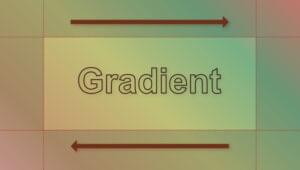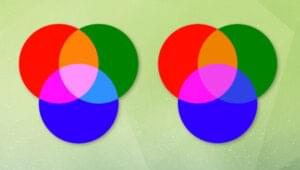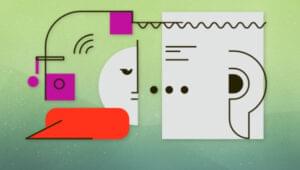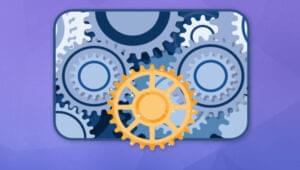Software programming is a balanced mix of art (sometimes a euphemism for improvisation) and a bunch of well-proven heuristics used to tackle certain problems and solve them in a decent fashion. Few will disagree that the artistic side is by far the hardest one to polish and distill over time. On the other hand, taming the forces behind the heuristics is fundamental for being able to developing software that rests on the foundation of good design. With so many heuristics stating how and why software systems should cling to a specific approach, it’s pretty disappointing not seeing a broader implementation of them in the world of PHP. For example, the Law of Demeter is probably one of the most underrated in the language’s realm. Effectively, the law’s “talk to your closest friends” mantra still seems to be in a pretty immature state in PHP, something that contributes to rot in the overall quality of several object-oriented code bases. Some popular frameworks are actively pushing it forward, trying to be more committed to the law’s commandments. Throwing blame around for infringing the Law of Demeter is pointless, as the best way to mitigate such breakages is to simply be pragmatic and understand what’s actually under the law’s hood hence consciously applying it when writing object-oriented code. In an attempt to join the just cause and dig a little bit deeper into the law from a practical point of view, in the next few lines I’ll be demonstrating through some hands-on examples why something so simple as adhering to the law’s principles can be a real boost when designing loosely-coupled software modules.
Knowing Too Much Isn’t a Good Thing
Often referred to as the Principle of Least Knowledge, the rules promoted by the Law of Demeter are easy to digest. Simply put, and assuming that you have a beautifully-crafted class which implements a given method, the method in question should be constrained to call other methods that belong to the following objects:- An instance of the method’s originating class.
- Objects that are arguments of the target method.
- Objects that are created by the target method.
- Objects that are dependencies of the method’s originating class.
- Global objects (ouch!) that can be accessed by the originating class within the target method.
<?php
namespace LibraryFile;
use LibraryDependencyInjectionServiceLocatorInterface;
class FileStorage
{
const DEFAULT_STORAGE_FILE = "data.dat";
private $locator;
private $file;
public function __construct(ServiceLocatorInterface $locator, $file = self::DEFAULT_STORAGE_FILE) {
$this->locator = $locator;
$this->setFile($file);
}
public function setFile($file) {
if (!is_readable($file) || !is_writable($file)) {
throw new InvalidArgumentException(
"The target file is invalid.");
}
$this->file = $file;
return $this;
}
public function write($data) {
try {
return file_put_contents($this->file,
$this->locator->get("encoder")->encode($data),
LOCK_EX);
}
catch (Exception $e) {
throw new $e(
"Error writing data to the target file: " .
$e->getMessage());
}
}
public function read() {
try {
return $this->locator->get("encoder")->decode(
@file_get_contents($this->file));
}
catch(Exception $e) {
throw new $e(
"Error reading data from the target file: " .
$e->getMessage());
}
}
}FileStorage class and its write() and read() methods. The class injects an instance of a still undefined service locator, which is used later on for acquiring a dependency (the aforementioned encoder) in order to fetch and store data in the target file.
This is a typical infringement of the Law of Demeter considering that the class first goes through the locator and in turn reaches the encoder. The caller FileStorage knows too much about the locator’s internals, including how to access the encoder, which definitively isn’t an ability I would sing praises about. It’s an artifact intrinsically rooted to the nature of service locators (and that’s why some see them as an anti-pattern) or any other kind of static or dynamic registries, something that I pointed out before.
To have a more general view of the issue, let’s check the locator’s implementation:
<?php
namespace LibraryDependencyInjection;
interface ServiceLocatorInterface
{
public function set($name, $service);
public function get($name);
public function exists($name);
public function remove($name);
public function clear();
}<?php
namespace LibraryDependencyInjection;
class ServiceLocator implements ServiceLocatorInterface
{
private $services = [];
public function set($name, $service) {
if (!is_object($service)) {
throw new InvalidArgumentException(
"Only objects can register with the locator.");
}
if (!in_array($service, $this->services, true)) {
$this->services[$name] = $service;
}
return $this;
}
public function get($name) {
if (!$this->exists($name)) {
throw new InvalidArgumentException(
"The requested service is not registered.");
}
return $this->services[$name];
}
public function exists($name) {
return isset($this->services[$name]);
}
public function remove($name) {
if (!$this->exists($name)) {
throw new InvalidArgumentException(
"The requested service is not registered.");
}
unset($this->services[$name]);
return $this;
}
public function clear() {
$this->services = [];
return $this;
}
}<?php
namespace LibraryEncoder;
interface EncoderInterface
{
public function encode($data);
public function decode($data);
}<?php
namespace LibraryEncoder;
class Serializer implements EncoderInterface
{
public function encode($data) {
if (is_resource($data)) {
throw new InvalidArgumentException(
"PHP resources are not serializable.");
}
if (($data = serialize($data)) === false) {
throw new RuntimeException(
"Unable to serialize the data.");
}
return $data;
}
public function decode($data) {
if (!is_string($data)|| empty($data)) {
throw new InvalidArgumentException(
"The data to be unserialized must be a non-empty string.");
}
if (($data = @unserialize($data)) === false) {
throw new RuntimeException(
"Unable to unserialize the data.");
}
return $data;
}
}<?php
use LibraryLoaderAutoloader,
LibraryEncoderSerializer,
LibraryDependencyInjectionServiceLocator,
LibraryFileFileStorage;
require_once __DIR__ . "/Library/Loader/Autoloader.php";
$autoloader = new Autoloader();
$autoloader->register();
$locator = new ServiceLocator();
$locator->set("encoder", new Serializer());
$fileStorage = new FileStorage($locator);
$fileStorage->write(["This", "is", "my", "sample", "array"]);
print_r($fileStorage->read());FileStorage. Regardless, we know the infringement is just right there hidden from the outside world, a fact that not only reveals too much about the locator’s structure, but couples unnecessarily the FileStorage class to the locator itself.
Just by sticking to the law’s rules and getting rid of the locator, we’d be removing the coupling, while at the same providing FileStorage with the actual collaborator it needs to do its business. No more clunky, revealing mediators along the way!
Fortunately, all this babble can be easily translated into working code with just a pinch of effort. Just check the enhanced, Law of Demeter-compliant version of the FileStorage class here:
<?php
namespace LibraryFile;
use LibraryEncoderEncoderInterface;
class FileStorage
{
const DEFAULT_STORAGE_FILE = "data.dat";
private $encoder;
private $file;
public function __construct(EncoderInterface $encoder, $file = self::DEFAULT_STORAGE_FILE) {
$this->encoder = $encoder;
$this->setFile($file);
}
public function setFile($file) {
// the sample implementation
}
public function write($data) {
try {
return file_put_contents($this->file,
$this->encoder->encode($data), LOCK_EX);
}
catch (Exception $e) {
throw new $e(
"Error writing data to the target file: " .
$e->getMessage());
}
}
public function read() {
try {
return $this->encoder->decode(
@file_get_contents($this->file));
}
catch(Exception $e) {
throw new $e(
"Error reading data from the target file: " .
$e->getMessage());
}
}
}EncoderInterface interface, avoiding going through the internals of an unnecessary intermediate. The example is unquestionably trivial, but it does make a valid point and demonstrates why adhering to the Law of Demeter’s commandments is one of the best things you can do to improve the design of your classes.
Still, there’s a special case of the law, covered in depth in Robert Martin’s book Clean Code: A Handbook of Agile Software Craftsmanship, that deserves a particular analysis. Just think this through for a moment: what would happen if FileStorage was defined to acquire its collaborator via a Data Transfer Object (DTO), like this?
<?php
namespace LibraryFile;
interface FileStorageDefinitionInterface
{
public function getEncoder();
public function getFile();
}<?php
namespace LibraryFile;
use LibraryEncoderEncoderInterface;
class FileStorageDefinition implements FileStorageDefinitionInterface
{
const DEFAULT_STORAGE_FILE = "data.dat";
private $encoder;
private $file;
public function __construct(EncoderInterface $encoder, $file = self::DEFAULT_STORAGE_FILE) {
if (!is_readable($file) || !is_writable($file)) {
throw new InvalidArgumentException(
"The target file is invalid.");
}
$this->encoder = $encoder;
$this->file = $file;
}
public function getEncoder() {
return $this->encoder;
}
public function getFile() {
return $this->file;
}
}<?php
namespace LibraryFile;
class FileStorage
{
private $storageDefinition;
public function __construct(FileStorageDefinitionInterface $storageDefinition) {
$this->storageDefinition = $storageDefinition;
}
public function write($data) {
try {
return file_put_contents(
$this->storageDefinition->getFile(),
$this->storageDefinition->getEncoder()->encode($data),
LOCK_EX
);
}
catch (Exception $e) {
throw new $e(
"Error writing data to the target file: " .
$e->getMessage());
}
}
public function read() {
try {
return $this->storageDefinition->getEncoder()->decode(
@file_get_contents($this->storageDefinition->getFile())
);
}
catch(Exception $e) {
throw new $e(
"Error reading data from the target file: " .
$e->getMessage());
}
}
}FileStorage with the DTO in question:
<?php
$fileStorage = new FileStorage(new FileStorageDefinition(new Serializer()));
$fileStorage->write(["This", "is", "my", "sample", "array"]);
print_r($fileStorage->read());Closing Thoughts
With a prolific variety of tangled, sometimes esoteric, heuristics making their way through OOP, it seems pointless to add just another one to the pile, which apparently doesn’t have any visible positive impact in the design of layer components. The Law of Demeter, though, is everything but a principle with little or no application in the real world. Despite of its flourishy name, the Law of Demeter is a powerful paradigm whose primary goal is to promote the implementation of highly-decoupled application components by eliminating any unnecessary mediators. Just follow its commandments, without falling into blind dogmatism of course, and you’ll see the quality of your code improve. Guaranteed. Image via FotoliaFrequently Asked Questions (FAQs) about the Law of Demeter
What is the main principle behind the Law of Demeter?
The Law of Demeter, also known as the principle of least knowledge, is a design guideline for developing software. This principle suggests that an object should only communicate with its immediate neighbors and should not have knowledge about the inner workings of other objects. It promotes loose coupling and modular code, making the software easier to maintain and modify.
How does the Law of Demeter improve code quality?
The Law of Demeter improves code quality by reducing the dependencies between classes or objects. This makes the code more modular and easier to understand, test, and maintain. It also reduces the risk of breaking changes, as modifications in one part of the code are less likely to affect other parts.
Can the Law of Demeter be applied to functions as well as objects?
Yes, the Law of Demeter can be applied to functions as well. When applied to functions, it suggests that a function should only call other functions in its immediate scope. This means that a function should not call another function that is defined inside another function.
What are the potential drawbacks of applying the Law of Demeter?
While the Law of Demeter can improve code quality, it can also lead to a proliferation of wrapper methods, as each object can only communicate with its immediate neighbors. This can make the code more verbose and harder to understand. It can also potentially impact performance, as more method calls are required.
How does the Law of Demeter relate to the concept of encapsulation?
The Law of Demeter is closely related to the concept of encapsulation, a fundamental principle of object-oriented programming. Encapsulation involves hiding the internal state and functionality of an object, exposing only what is necessary. The Law of Demeter takes this a step further by suggesting that an object should not even be aware of the inner workings of other objects.
Can the Law of Demeter be applied to other programming paradigms besides object-oriented programming?
While the Law of Demeter originated in the context of object-oriented programming, its principles can be applied to other programming paradigms as well. For example, in functional programming, the Law of Demeter can be interpreted as a guideline to minimize the dependencies between functions.
How does the Law of Demeter compare to other design principles, like SOLID?
The Law of Demeter is similar to the SOLID principles in that both are aimed at improving the maintainability and modularity of code. However, while SOLID provides a comprehensive set of guidelines for object-oriented design, the Law of Demeter is more focused, dealing specifically with the interactions between objects or functions.
Are there any tools or techniques to help enforce the Law of Demeter?
There are various static analysis tools that can help enforce the Law of Demeter by detecting violations in the code. Additionally, test-driven development (TDD) can also encourage adherence to the Law of Demeter, as it promotes writing small, focused tests, which in turn encourages writing loosely coupled code.
How does the Law of Demeter affect the performance of code?
While the Law of Demeter can potentially lead to more method calls, which could impact performance, this is generally not a significant concern. The benefits of improved maintainability and modularity typically outweigh any minor performance costs. Furthermore, modern compilers and interpreters are often able to optimize away the extra method calls.
Is it always necessary to follow the Law of Demeter?
Like any design principle, the Law of Demeter is a guideline, not a hard rule. There may be situations where it makes sense to violate the Law of Demeter for the sake of clarity or efficiency. The key is to understand the trade-offs and make informed decisions.
Alejandro Gervasio is a senior System Analyst from Argentina who has been involved in software development since the mid-80's. He has more than 12 years of experience in PHP development, 10 years in Java Programming, Object-Oriented Design, and most of the client-side technologies available out there.



































































































